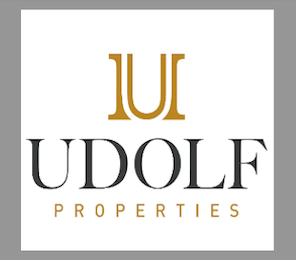By Shlomo Riskin ~
Yom Kippur: What does God want?
Efrat, Israel – “For on this day He shall forgive you to purify you from all of your transgressions; before the Lord shall you be purified.”
This last phrase, “before the Lord shall you be purified,” is for me the truest meaning of Yom Kippur. Yom Kippur is, after all, the most complex and comforting day of the year: a day of self-sacrifice and divine forgiveness, a day of discipline and deprivation and a day of overflowing love and never-ending compassion, a day of mortal fear, and a day of divine embrace and loving-kindness. We may enter Yom Kippur laden with guilt, but we leave it redeemed. Above all, Yom Kippur involves standing before God – just you and Him – and becoming pure.
From this perspective, the most striking image of Yom Kippur is the very last act of the High Priest in his Yom Kippur garb. He bathes a fourth time, puts on his white linen garments, and enters the Holy of Holies, the space sanctified with the overwhelming sense of the Divine Presence. Earlier, he had performed in that place a difficult and even trying sacrificial offering, his gift of fragrant incense. This time, he enters the Presence and stands there, without performing a divine service, without reciting a formal prayer. Then he leaves, bathes a fifth time, and dons the golden garments of the regular daily afternoon sacrifice.
His solitary moment with God has ended; the magic of the special Day of Forgiveness is over. But what did it mean? What did he, and what do we, take out of that singular meeting with the divine, devoid of ritual or ceremony, at the conclusion of the most sacred day of the year in the most sacred space in the world? Let us for a moment re-visit last week’s commentary on the akeda. Abraham and Isaac walk a solitary walk during those three momentous days of performing God’s awesome commandment: A tense silence between father and son permeates the atmosphere, punctuated by brief, difficult and ambiguous words. The air is heavy with God’s unspoken command, heard only by Abraham, fearfully sensed by Isaac.
But what was God’s command? He asked Abraham to take Isaac as an olah – but what does this mean? Is it a whole-burnt offering, a slaughter-sacrifice, or is it merely a dedication of Isaac’s life to God’s will? The midrash (Genesis Raba, Vayeira, 56:4) has an extra “character” show up during this journey – Satan. He cries out to Abraham, “Old man, old man, have you lost your mind? Are you about to slaughter the son given to you at 100 years of age? …. Tomorrow I shall charge you with spilling blood, with spilling the blood of your own son.”
And Abraham must now be pondering, “Is this attempt to turn me away from doing what God ordered the word of Samael? Perhaps what I thought I heard yesterday was the word of Samael? Perhaps God only wants me to dedicate Isaac in life, and it is Satan- Moloch who wants me to murder my beloved child!” Let us now skip many generations, and perhaps we will understand why the divine command is ambiguous, why God used a word, olah, which could be interpreted in two ways. Rav Oshri, the rabbi of the Kovno Ghetto at the time of the Holocaust, wrote a book of responsa, Mima’amakim (From the Depths) based on his experience. One question came from a distraught father, whose only son had been taken for a kinderaktion – a 5 a.m. children’s round-up to the gas chambers of Auschwitz.
“I have a gold tooth,” wept the father. “The kapo will take it from me and free my son – but he will have to substitute someone else’s son to meet the quota. What must I do?” Rav Oshri tearfully responded that he could not give the father an answer. All that night, he saw the agitated man walking back and forth in front of his house. When the Rav walked out at 4:45 a.m., the tearful father could only say two words, Akedat Yitzhak.
He did not give the kapo his tooth.
Each of us must stand alone, in the fullness of our being, before God, and attempt to understand what God wants of us. What is the right path? Is it God’s voice we are hearing, or Satan’s? This is the meaning of the meeting between God and the High Priest – without ritual or formal prayer – at the conclusion of our Holy Fast.
And since this divine-human confrontation takes place on the day of forgiveness and purity, we may be reasonably certain that if we are honest with ourselves, we will correctly interpret God’s words of love, compassion and grace.
Rabbi Shlomo Riskin is chancellor of Ohr Torah Stone and chief rabbi of Efrat, Israel.








 Southern New England Jewish Ledger
Southern New England Jewish Ledger








